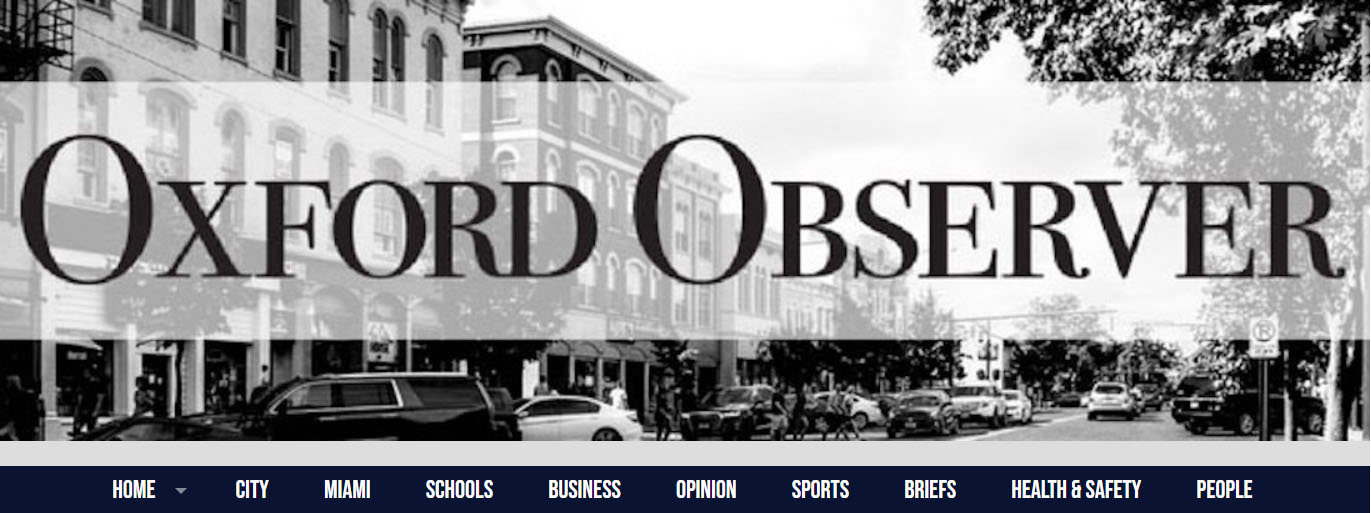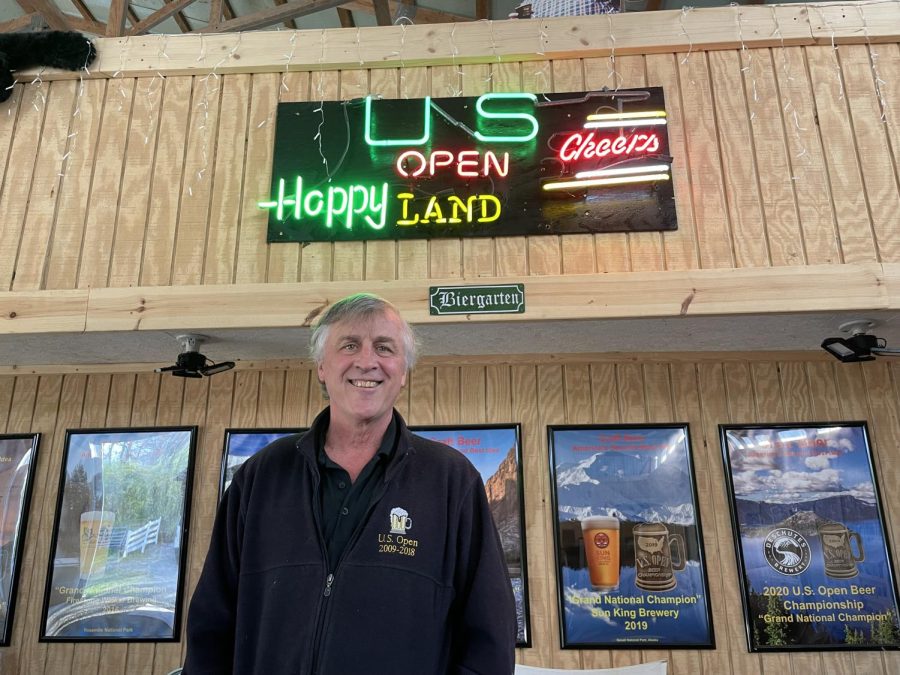By Corbett Haase
April 20, 2023
The third-largest beer brewing competition in the United States, the U.S. Open Beer Championship takes place next to local brewer Dow Scoggins’ Somerville Road home.
Scoggins repurposed an old barn into an expansive center for beer and alcohol storage, complete with tables for serving and judging. He is in the process of getting licensing so he can include a brewery in the barn. He said he hopes to sell his beer come fall. He has also expanded into cider, whiskey and liquor competitions for a total of four championships a year. The last championship held in the barn was whiskey. The next competition, held at the end of May, is beer.
Scoggins said that running the U.S. Opens is his only job and that these competitions generated over $300,000 in revenue last year.
Since 2009, hundreds of brewers mailed their best bottles to Scoggins’ U.S. Open Beer Competition to hopefully be awarded a medal for brewing excellence. Last year, breweries from Maine to Maui sent in over 9,000 total beers that represent 140 different styles of beer.
“I have known three out of the four original directors since I was 13 years old,” said Scoggins. “Then the four of us started a brewery together in 1989, and since we had all been friends since 9th grade, called it Friends Brewing. We have been drinking and judging beer together ever since.”
When Scoggins started the competition there were around 25 styles of beer judged. Now, at the U.S. Open Beer, there are over 160 different styles of beer.
Originally from Alabama, Scoggins took a job in Canada, where, in 1987, he met John Downing, who was a brewer at a brewery in Ontario. Latert, Downing worked for a brewing equipment company and would take Scoggins along to different breweries, where he learned the beer world.
Scoggins said he went on to create his own brewery in Georgia in 1989, which he called Friends Brewing. Downing, who has gone on to install over 120 breweries worldwide and has developed 500 beers, joined him as a brewer.
After the brewery in Georgia failed, Scoggins, who held a computer science degree, returned to work with computers. As the internet developed, under the domain America’s Best Online, Scoggins began publishing web pages publishing top 10 lists of what he thought were the best beaches, best beers, best breweries, and so on, but stopped when they didn’t make any money. About two years later, Google called, asking him to advertise on his websites. Scoggins said that is when he thought about how to use advertising for his benefit.
At a craft brewer conference in 2008, Scoggins saw the men who ran Beer Advocate, the top beer site at the time. He looked at their website and saw no advertisements, so he asked them how they made their money. They told him they do beer festivals.
Once Scoggins learned that beer festivals existed, he began figuring out how to hold his own. He decided to allow any brewery to have two entries for free, providing them with free advertising. In the first year, 47 breweries participated, and most only entered two beers.
After the expenses of the medals, pizza and Downing’s flight in from Canada were accounted for, the beer open made $50. Eventually, Scoggins was able to eliminate free entries and raised the entry fee.
Scoggins runs the competition entirely with friends and volunteers to serve, judge, unwrap, and the thousands of beer bottles that were shipped in to compete.
Scoggins’ brewery in Helen, Georgia in 1990. Pictured from left, Heidi, Dow Scoggins, Phil Churchman, Rick Roberts, Frank Cronin, Jon Downing. Provided photo
“I’m the luckiest guy in the world,” Scoggins said. “Everyone is willing to just come together. I never could have anticipated my living would be dependent on 50 to 60 volunteers who come back year after year. Without them, I would be in a ditch with no money.”Rhett Brymer used to be a professor at Miami University and met Scoggins about 14 years ago through a mutual friend. He began the beer class at Miami and now teaches at The University of Cincinnati, but lives in Oxford and is an honorary director of the U.S. Open Championship.
“I had heard that the U.S. Open was run in Oxford and I thought it was incredible…I ended up meeting Dow through a mutual friend,” Brymer said. “Beer geeks, especially in a small town, have a way of finding each other,” he added.
On the day of the annual competition, the beers are divided up into 150 categories. The judges are separated into tables and the servers start bringing the beers over. The judges usually get anywhere from six to 12 beers at once, with a notepad to write down their thoughts and scores.
This year, the beers will arrive in Oxford between May 15 and May 26. After a few weekends of blind tasting and judging, the Grand National Champion will be announced on July 12.
“It’s kind of a beer lover’s dream… an entire truck full of mystery beer… And it’s these small brewers points of pride, ya know, they’ve been working on this for so long and want their beer to win,” said Brymer.
Mike Curme, a retired Miami professor, said he tries to volunteer at every competition. “The U.S. Open is proud of the fact that in some aspects it’s a serious endeavor, but the people associated with it have a lot of fun and there’s a lot of camaraderie,” Curme said. “It’s just good friends sitting around talking about what they like or what could be improved about a beer.”
The competition that began with less than 25 breweries and 50 total beer entries, now averages 600 breweries, with most entering multiple beers.
“I remember the first time we ever did this, one of the home brewers won a gold medal. The guy was in tears when I called him,” Scoggins said. “We go and present and, nothing’s all sunshine and roses, but this is really darn close to it, you know?”
He added, “it’s not just about the money. If it was about the money, there are a lot easier ways to do it than this thing.” The entry fee is $85 per beer, and any brewery submitting five or more beers will be considered for Grand National Champion.
More recently, The U.S. Open has started a Pink Boots scholarship category, to support the women’s brewing association. The Pink Boots Association brews a specific type of beer; all money made off of it goes towards the scholarship. The U.S. Open matches the Pink Boots entry fees and allocates all of that money toward the scholarship. Last year, Scoggins raised over $4,500 for the Pink Boots Scholarship Fund.
Scoggins also mentioned that when he and his old brewmaster sold his first brewery, his old brewmaster installed his old brewery system in a small town in Ukraine. During COVID-19, they reinstated the two free entry rules.
Curme said Scoggins “is kind of a Ted Lasso character. Always positive, always gracious and would give you the shirt off his back.”
“The whole group of people that run this are just good people who would help each other out in any time of hardship or pinch,” he continued.


